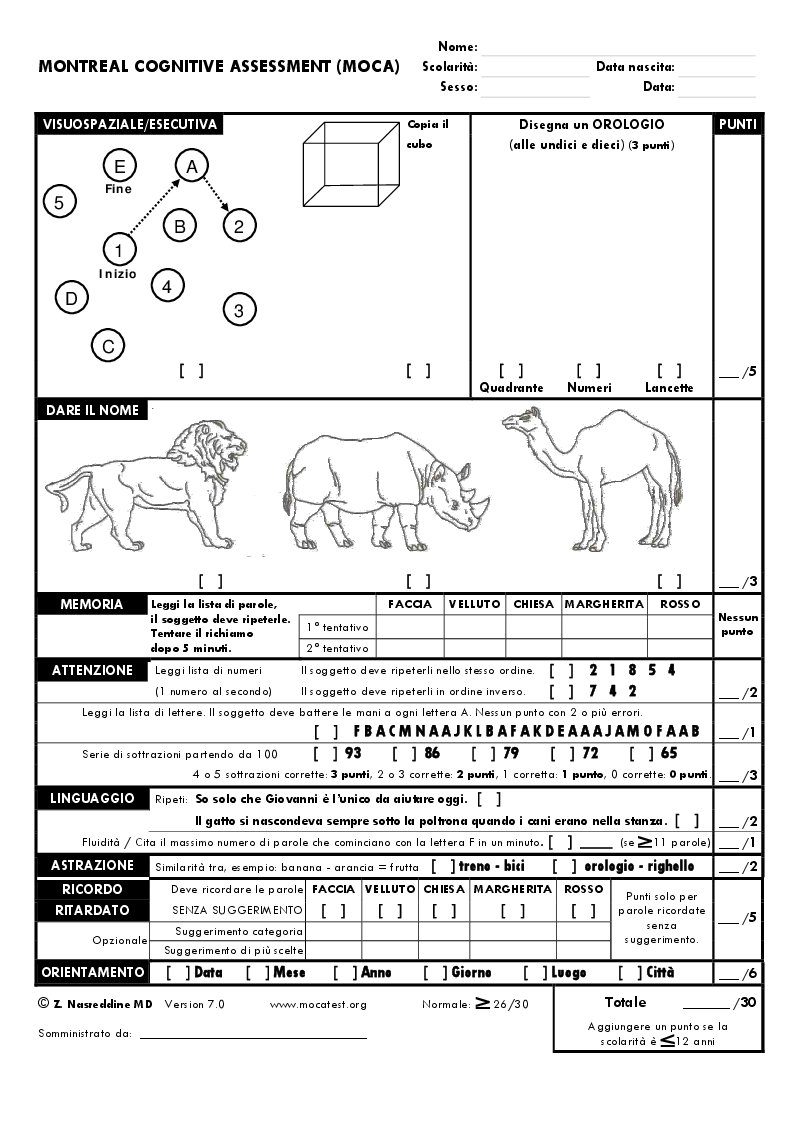
The overall quality and quantity of information is insufficient to make recommendations on the clinical utility of MoCA for detecting dementia in different settings. In the four studies that used the recommended threshold score of 26 or over indicating normal cognition, the MoCA had high sensitivity of 0.94 or more but low specificity of 0.60 or less. The prevalence of dementia was 22% to 54% in the clinic-based studies, and 5% to 10% in population samples. There were 9422 participants in total, but most of studies recruited only small samples, with only one having more than 350 participants. Seven studies were selected: three in memory clinics, two in hospital clinics, none in primary care and two in population-derived samples. We performed quality assessment according to the QUADAS-2 criteria.Methodological variation in selected studies precluded quantitative meta-analysis, therefore results from individual studies were presented with a narrative synthesis. Study authors were contacted where there was insufficient information to complete the 2x2 tables. This allowed calculation of sensitivity and specificity if not already reported in the study. We extracted dementia study prevalence and dichotomised test positive/test negative results with thresholds used to diagnose dementia. We excluded studies of early onset dementia, dementia from a secondary cause, or studies where participants were selected on the basis of a specific disease type such as Parkinson's disease or specific settings such as nursing homes. We searched for studies from memory clinics, hospital clinics, primary care and community populations. We also searched for relevant grey literature from the Web of Science Core Collection, including Science Citation Index and Conference Proceedings Citation Index (Thomson Reuters Web of Science), PhD theses and contacted researchers with potential relevant data.Ĭross-sectional designs where all participants were recruited from the same sample were sought case-control studies were excluded due to high chance of bias. We identified further relevant studies from the PubMed 'related articles' feature and by tracking key studies in Science Citation Index and Scopus. We also searched ALOIS (Cochrane Dementia and Cognitive Improvement Group specialized register of diagnostic and intervention studies). In addition, we searched specialised sources containing diagnostic studies and reviews, including MEDION (Meta-analyses van Diagnostisch Onderzoek), DARE (Database of Abstracts of Reviews of Effects), HTA (Health Technology Assessment Database), ARIF (Aggressive Research Intelligence Facility) and C-EBLM (International Federation of Clinical Chemistry and Laboratory Medicine Committee for Evidence-based Laboratory Medicine) databases. We searched MEDLINE, EMBASE, BIOSIS Previews, Science Citation Index, PsycINFO and LILACS databases to August 2012.

To determine the diagnostic accuracy of the Montreal Cognitive Assessment (MoCA) at various thresholds for dementia and its subtypes. Recent policy changes in Western countries to increase detection mandates a careful examination of the diagnostic accuracy of neuropsychological tests for dementia. Global prevalence is projected to increase, particularly in resource-limited settings. Dementia is a progressive syndrome of global cognitive impairment with significant health and social care costs.


 0 kommentar(er)
0 kommentar(er)
